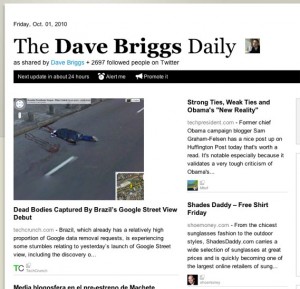My diary is starting to fill up a bit with events to attend, and those I have been asked to speak at. Here’s a quick run down.
FirePRO Conference – Wednesday 13th October
I’ll be speaking to the conference for public relations officers in the Fire and Rescue Services.
My session is all about “How to get the most from social media”:
Is social media a ‘nice to have’ or is it an essential part of a modern communication strategy? This session will discuss ways of integrating social media into mainstream communication and ask whether FRSs can work together to maximise the benefits of online communication.
SLCC National Conference – Saturday 16th October
I’ll be talking to local council clerks about how they can use the web to get people more involved in local democracy and the activity of parish, town and community councils.
Beyond 2010 – 20th and 21st October
I’ll be attending this great looking event in Birmingham as a punter rather than a speaker, and am really looking forward to it given the great line up. Nick wrote it up nicely here.
How to save money and influence people: Implementing behaviour change strategies – 24th November
This LGA conference is all about how councils can manage the significant changes necessary to meet the challenges facing local government – without utterly alienating staff. I’ll be talking about the role that social technology can play in this.
WLGA Member Support and Development Conference – 26th November
I’ll be talking to this Welsh LGA conference about how councillors can be supported in their use of the web to engage with residents.




